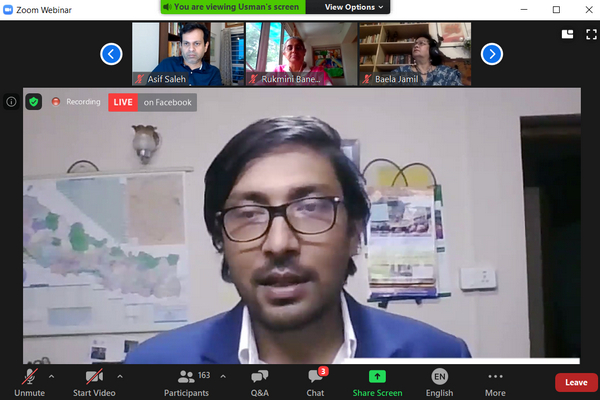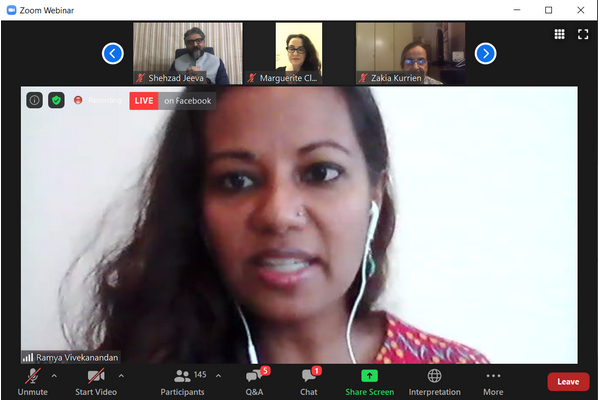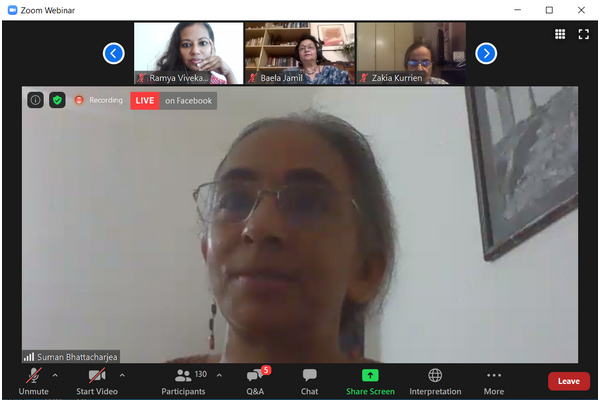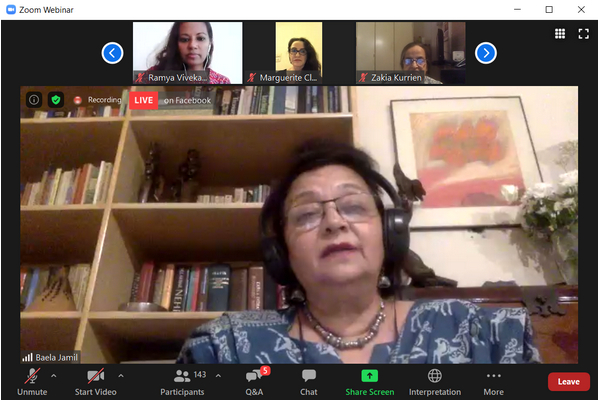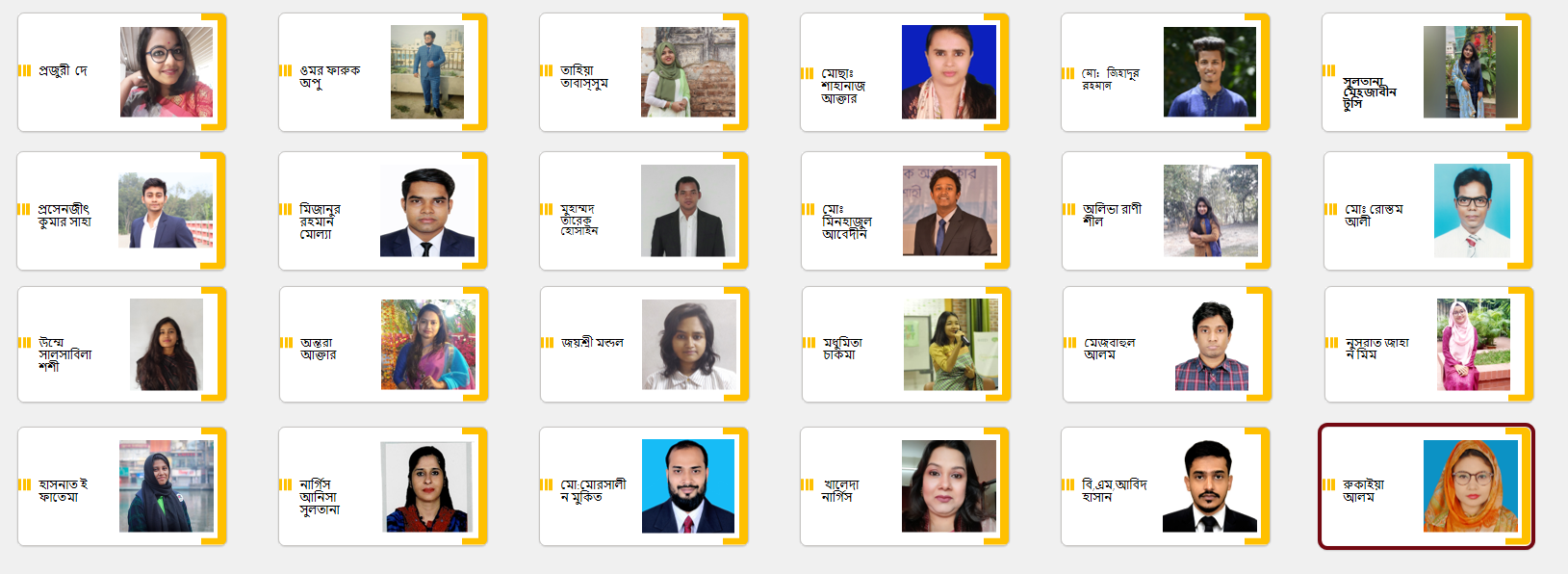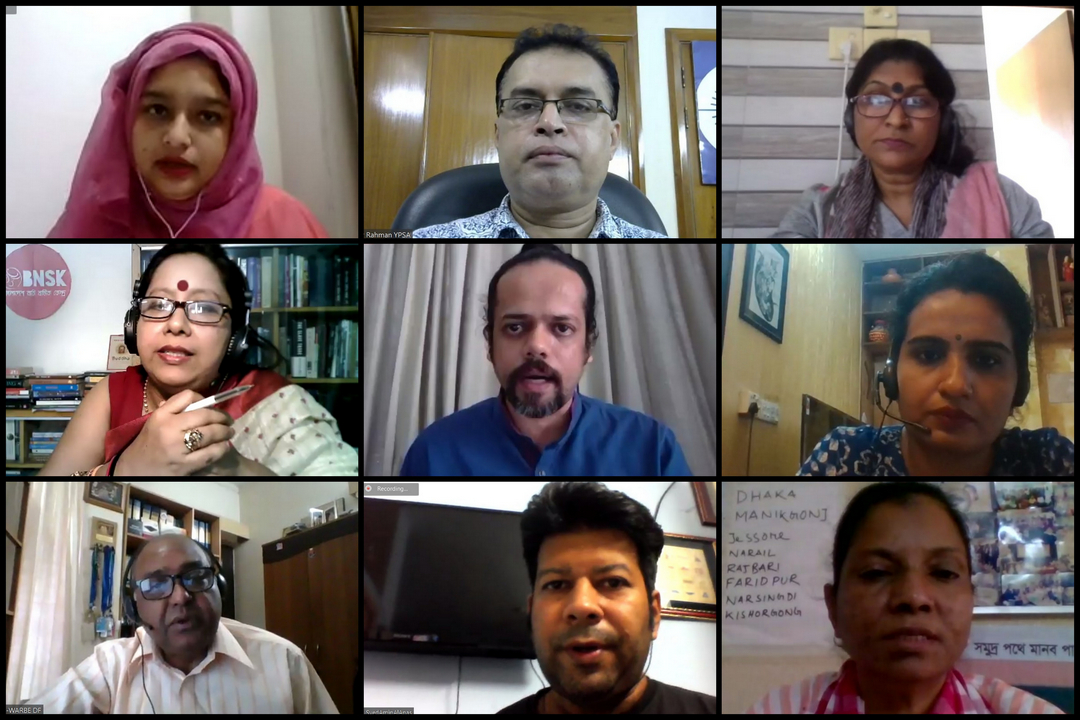COVID-19 outbreak further threatened the already existing learning crisis across the globe at an unimaginable level. Schools are shut down for months, which is increasing the learning loss of 1.5 billion children every single day. Proper diagnosis through accurate rapid assessment is essential to help students make up for the learning losses, argued education experts from around the world on August 10, 2020 during a webinar.
The webinar on ‘Understanding foundational numeracy: South Asian perspectives on ICAN, a new global tool’ was hosted by the People’s Action for Learning (PAL) Network and ASER South Asia- a partnership of education institutes from Bangladesh, India, Nepal and Pakistan.
While launching the global tool ICAN -International Common Assessment of Numeracy, the educationists emphasized on the importance of a citizen-led common assessments in post-pandemic assessment of South Asian children.
Asif Saleh, Executive Director of BRAC, raised concerns that Bangladeshi children may get only four months of schooling this year to cover 12 month’s curricula due to COVID-19 pandemic. So, it created a policy dilemma on how and to what extent, children should be assessed by the existing examination system. He emphasized that ICAN can be used quickly to assess the level of learning loss, which will essentially help decision makers to take informed decisions.
Ramya Vivekanandan, Senior Education Specialist of Global Partnership for Education (GPE) mentioned that we can’t improve learning without actually being able to measure and track children’s learning outcomes. She argued that scaling up regional initiatives like ICAN is key to develop a stronger education system.
Marguerite Clarke, Senior Education Specialist of the World Bank said, with the citizen-lead approach being at its heart, ICAN offers liberating the assessment process from technical elites. She also added that citizen led assessment shows the power of country citizens to take actions to improve learning outcomes; so, ICAN is an assessment of the people, by the people and for the people.
Syeed Ahamed, CEO of IID Bangladesh stressed that when children will come back to schools after the pandemic is over, they need to be assessed to understand which children need additional care and which children need extra catch up. Traditional summative assessment is not the solution.
Rukmini Banerji, CEO of Pratham India pointed out that the simplicity of the tool, the ability to explain this to anyone and the possibility of doing this with a very large number of children—all meant to focus on learning for all.
Shehzad Jeeva, Chairman of IBCC Pakistan, the inter board committee of education and textbook Boards, pointed out that ICAN is a significant milestone for South Asian countries for developing a scalable, cost-effective and comparable common assessment tool of numeracy. He further stressed that assessment should follow a diagnostic approach to identify learning gaps rather than ticking pass or fail.
Know more about ASER Bangladesh
Dr. Wilima Wadhwa, Executive Director of ASER Centre mentioned that the launch of ICAN in South Asia is very significant because as unlike other regions of the world, this region lacked a common assessment tool and had a very low participation in international assessments.
In the event, Dr. Suman Bhattacharjea, Director of Research, ASER Centre pointed out that in the South Asian region, in spite of countrywide specificity, there exist similar sets of problems. Collective effort to look for common solutions can be very effective.
Baela Raza Jamil, CEO of Idara-e-Taleem-o-Aagahi (ITA) underlined that International common assessment of numeracy- ICAN is perfectly mapped to SDG4 and target 4.1.1a. It not only measures assessment, but also has cues for learning gains.
Rajib Timalsina from ASER Nepal emphasized that the launch of ICAN is timely because South Asia didn’t have any common regional assessment tools and ICAN can fill that gap.
Ketan Verma from PAL Network, mentioned that ICAN, not being limited to school based assessment, is able to identify learning disparities between the children at schools and out of schools.
ICAN is an open-source, robust and easy-to-use tool that can assess foundational numeracy of 5-16 years children and is available in 11 languages. This tool is aligned with UNESCO’s Global Proficiency Framework at grade 3 or lower level and can be used in diverse contexts such as at schools, households, refugee camps etc. Among the South Asian countries, the tool is available in Bangla, Hindi, Nepali, Urdu and English. ASER South Asia is a partnership of four South Asian education institutes— ASER Bangladesh, ASER India, ASER Nepal and ASER Pakistan.
Today, the importance of measuring foundational reading and numeracy in early grades is widely acknowledged and is reflected in indicator 4.1.1(a) of the global Sustainable Development Goal for education (SDG 4). However, tracking progress towards this goal has been hampered due to lack of data: none of the existing large scale assessment models like Trends in International Mathematics and Science Study (TIMSS) and Programme for International Student Assessment (PISA) are able to generate comparable data on children’s foundational skills in early grades. As the world grapples with defining the ‘new normal’ in the wake of COVID-19, tools like ICAN can provide rapid, cost-effective, easily scalable mechanisms that can help to understand how best to support children’s learning. Experts further emphasized developing an assessment tool is complex and expensive activity. So rather spending more, use ICAN which is free, flexible and aligned to the international standards.
To take ICAN to the next level, experts recommend the following actions:
- ICAN should be transformed from a single open source tool to a program;
- ICAN should have multiple versions with new set of questions keeping learning framework same;
- ICAN’s concept is proved; it is time to conduct assessment on nationally representative sample; and
- Reading assessment should be part of this common assessment; and
- ICAN should also focus on country level curriculum to fit it regionally more.

